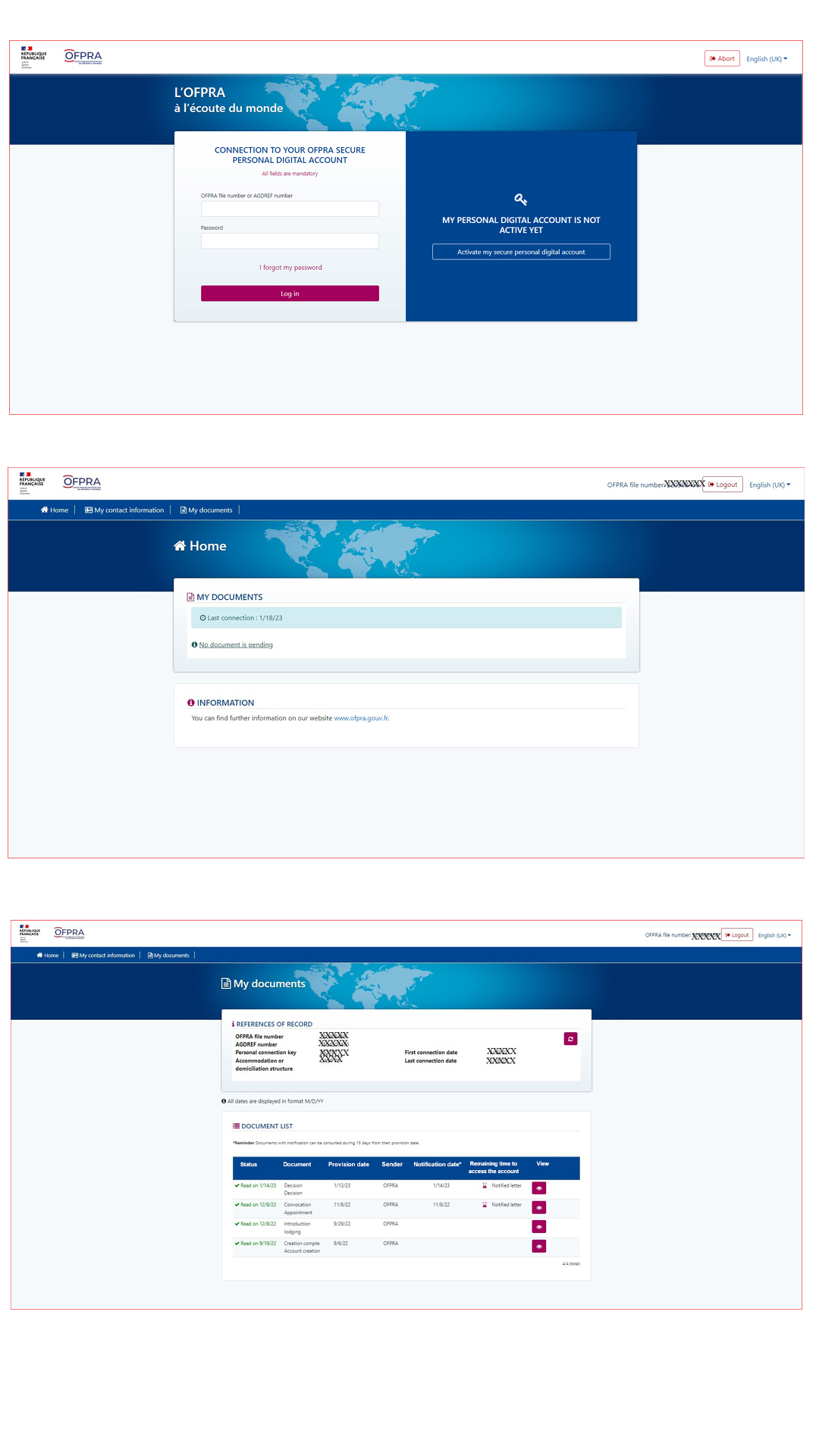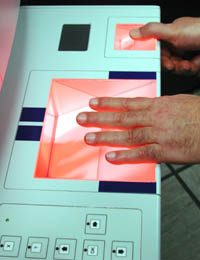Useful Information on Asylum Demand In France
The external nature of all asylum claims may not be political, but the underlying cause of all asylum claims is political.
Applying for asylum in France
France is one of the main asylum host countries in Europe. If you are not a citizen of a European Union member state, you are eligible to demand for asylum in France. The status of recognised asylum seekers is protected by corresponding laws and Convention relating to the Status of Refugees, pursuant to Article 1 A2 of the Geneva Convention of July 28, 1951.
In 2023, around 142,500 applications for international protection, including 123,400 first applications for asylum and 470 applications for stateless status, were lodged with the French Office for the Protection of Refugees and Stateless Persons (OFPRA), and around a third of these applications were accepted, according to provisional figures, compared with 131,000 people in 2022, of whom 29% had received a positive response, a slightly lower proportion.
For the sixth year running, Afghanistan topped the list with over 17,500 applications, followed by Bangladesh (8,600), Turkey (8,500), the Democratic Republic of Congo (8,000) and the Republic of Guinea (7,000).
Definition : Asylum seeker - Refugee - Stateless person - Subsidiary protection
Asylum seeker:
An asylum seeker is an individual who is seeking international protection. In countries with individualised procedures, an asylum seeker is someone whose claim has not yet been finally decided on by the country in which he or she has submitted it. Not every asylum seeker will ultimately be recognised as a refugee, but every refugee is initially an asylum seeker.
Refugee:
A refugee is a person who has fled their country of origin and is unable or unwilling to return because of a well-founded fear of being persecuted because of their race, religion, nationality, membership of a particular social group or political opinion.
Stateless person:
A stateless person is a person who, under national laws, does not have the legal bond of nationality with any State. Article 1 of the 1954 Convention relating to the Status of Stateless Persons indicates that a person not considered a national (or citizen) automatically under the laws of any State, is stateless.
(To know more, please check the website of Amnesty International)
Subsidiary protection:
The protection is given to a third-country national or a stateless person who does not qualify as a refugee but there are substantial grounds for believing that the person concerned, if returned to their country of origin, or in the case of a stateless person to their country of former habitual residence, would face a real risk of suffering serious harm as defined in Art. 15 of Directive 2011/95/EU (Recast Qualification Directive) and to whom Art. 17(1) and (2) of this Directive do not apply, and is unable or, owing to such risk, unwilling to avail themselves of the protection of that country.
(To know more, please check the website of European Commission)
How to demand asylum?
In order to apply for asylum in France, you must first report to a reception center (SPADA or PADA) within 90 days of arrival in the French territory. You should not go directly to the Prefecture or to the OFPRA (French office for the protection of refugees and stateless persons).
Note: In the Paris metropolitan region (Ile-de-France), a new system was put into place in May 2018 to get an appointment at the Spada. You first have to call the telephone number 01 42 500 900 managed by the OFII (French office for immigration and integration). The OFII agent will ask you questions about your date of entry into France, your civil status, the civil status of your family accompanying you, your state of health, etc. They will then send you a text message to the phone number that you give them, confirming the date and time of your SPADA appointment.
SPADA must obtain an appointment for you at the prefecture service desk called GUDA within 3 days (or 10 days if the number of asylum seekers is particularly high) and provide you with a notification of this appointment.
On the day of the appointment, if it appears that your asylum application is likely be the responsibility of another European state, the so-called “DUBLIN III” procedure will be implemented. (If it is your case, look at the bottom of the page for more details.)
If your asylum application is the responsibility of France, OFPRA is competent to examine it, in the normal procedure or in the accelerated procedure. In such a case, the prefecture will give you an attestation stating your status as ‘asylum seeker’ and an asylum request form which has to be submitted to OFPRA. You will have 21 days to submit the form along with your story justifying the demand of asylum by registered post. The language of your story must be in French. If not, it must be translated. (To know more, please check with www.gisti.org)
Based on interview with
PARVÈZ DOOKHY
Advocate & Doctor of Law
Sorbonne University, Paris
How do you submit an asylum application to Ofpra?
You must send the completed and signed asylum application form within 21 days of the date of issue of your asylum application certificate.
The application must include :
- 2 photographs ;
- a copy of your asylum application certificate or valid residence permit;
- a short description of the reasons for your asylum application in French
- your travel documents, if any
- if your application has been placed on the fast-track procedure (procédure accélérée), a copy of the information notice you received (to know more about it, visit the website of OFPRA)
About interview with the OFPRA
If you have applied for asylum before the OFPRA (Office for the Protection of Refugees and Stateless Persons), you should try to read interview copies (Q&A) of your acquaintances (if any) who had been through the same situation in the past, prior to the interview. This will give you an idea on what kind of questions are being asked. Then read your application carefully again and again to see if similar questions can be asked in your case.
The OFPRA nowadays does audio recording of all interviews. You can always request for a printed copy once the intervicw is over. The office may call you for another interview if necessary. Therefore, having the copy of the earlier interview may help you to look into your case more profoundly.
If the OFPRA decides in favour of your demand, it may grant you ‘refugee’ status or ‘subsidiary protection’ depending on the merit of your case. The beneficiary of refugee staus will receive a ten-year resident card whereas subsidiary protection is a temporary status where the benefiaciary will have to renew his/her resident card periodically.
If the OFPRA is not convinced by your statements, it will send you rejection letter containing a summary of the decision and transcript of the interview. You have the right to contest the decision by submitting an appeal to the National Refugee Court (CNDA).
ATTENTION: OFPRA NOTIFICATIONS ON ASYLUM APPLICATIONS UNDER EXAMINATION
Nowadays, OFPRA notifies asylum seekers of the registration of their application, the interview call and the decision via its website.
You need to view your personal digital space:
https://www.usager.ofpra.gouv.fr/ofpra/user/login
(Available in 25 languages including English and Bengali)
You will need to log in with your identification number, either OFPRA’s file number or foreigner number (AGDREF), and password (given to you when you registered your asylum claim with the OFII/Prefecture).
The notifications can be found in the ‘My Documents‘ section.
What does ‘Date of Notification’ mean?
Once OFPRA uploads the decision, you will receive an SMS alert. In case your case is rejected, you will have a maximum period of 15 days to view the decision. The day you view the decision online, will be considered as the ‘Date of Notification’ and the deadline for registering your appeal petition with CNDA will start.
If you want to have a legal aid lawyer, you have 15 days to register your application with CNDA’s Legal Aid Bureau (BAJ). If you want to appeal through a private lawyer, you’ll have 30 days to do so.
Note, if you do not view the decision within 15 days from the date of uploading the decision by OFPRA, then the date of upload will be counted as the date of notification.
Therefore, monitor your status regularly on the OFPRA’s website.
How an asylum seeker can obtain work permit while the demand is still under examination by OFPRA
If your are an asylum seeker, you cannot obtain a work permit during the first 6 months following the registration of your application by Ofpra.
However, while waiting for Ofpra’s response, you can, under certain conditions, benefit from the asylum seeker’s allowance (ADA).
During the first six months (in special cases):
If you’ve entered France with a long-stay visa issued via an asylum application, you will receive an attestation valid for 6 months from the prefecture authorizing you to work.
In general cases:
You can apply for a work permit if you meet the following 2 conditions:
1. You have the attesation of asylum application.
2. Your application has been under examination for more than 6 months by Ofpra.
In this case, when you’ll apply to renew your expired attestation, you can also apply for a work permit. But you must submit a promise of employment or an employment contract along with the application.
If the employment contract is proposed during the validity of the attestation, your future employer must apply for a work permit.
Regardless of when the application is submitted, it is examined according to the rules that apply to all foreign workers in France. In particular, the administration analyees the employment situation in the profession and the geographical area concerned with employment.
The duration of the work permit cannot exceed the duration of your attestation, which is 6 months. The work permit is renewable until Ofpra’s decision.
The application for authorisation is examined under the same conditions as those applicable to all foreign workers.
As long as you have obtained the right to work before Ofpra’s decision to reject your application, you retain this right in the event of an appeal to the CNDA.
The right way to submit an appeal to the CNDA
Submission of an appeal to the National Refugee Court (CNDA) is a legal procedure. You have to undergo a legal fight against the decision made by the OFPRA. Therefore, it is important to have a thorough knowledge in this regard. Therefore, the appeal should be submitted through a lawyer.
If you hire a lawyer
In case, you would like to hire a lawyer of your own, remember that the appeal must be submitted to the CNDA within 30 days from the reception date of the rejection letter from the post office. Therefore, contact the advocate of your choice immediately after the recpetion of the letter.
If you submit appeal to the CNDA yourself and then hire a lawyer, this may not be a right decision.
Only if your advocate of choice is absent for any reasons whatsoever, it is advised to do a simple registration with the CNDA, without argumentation, within 30 days limit to avoid invalidation of the appeal. Once you receive the letter from the CNDA confirming the registration, contact your advocate to prepare your appeal.
If you want a legal aid lawyer
Many asylum seekers want legal aid due to financial difficulties. If you want to submit appeal through a lagal aid lawyer (popularly known as Government Lawyer), you have to contact the legal aid section of the CNDA within 15 days from the day of reception of the rejection letter.
You do not have to worry about submitting an appeal unless the Court takes decision to grant you a lawyer. Once the court informs you by a letter the name of your lawyer, contact him/her as soon possible to have an appointment.
There are a number of good lawyers who work in the government framwork. You can find a good lawyer with a little research, in particular, having information from those who have already benifitted from the service.
If you want to avail the service a specific lawyer to represent you in the court, meet the lawyer as soon as you receive the rejection letter from the OFPRA. The advocate may take the responsibility to apply to the CNDA on your behalf, or he/she will give you an acceptation letter which you’ve to submit to the the court alongwith the application for legal aid.
Legal Aid Lawyer: what does it mean
However, there is one misconception that if a client pays some additionnal money to the legal aid lawyer, he/she will pay more attention to client’s file.
You should keep in mind that legal aid lawyers receive money from the government to fight cases as their clients can’t afford the legal fees. They will never ask you money.
If an intermediary person asks you to pay money separately, remember that this is a common practice of fraud among immigrants. It is therefore up to you to decide whether you will be the victim or not.
What you should do to prapare an appeal from your part
In both cases, you will have to analyse your case yourself. Read the rejection letter carefully to find out why the office has turned down your application. Read the copy of the Q&A section of your interview. If you don’t know enough French, translate the document in your mother tongue to find out whether your statements were properly interpreted to the officer in charge of the interview.
Inform the lawyer in writing your observations and if you have any specific statement in this regard. Think carefully before making a statement and use the legal opportunities.
About OQTF (Obligation de quitter le territoire français)
After the rejection of asylum application by the CNDA, the Prefecture may send you an OQTF (Obligation to leave the French territory) that means you are being ordered to leave France in a stipulated time. If you receive one, submit an appeal to the relevant Tribunal administrative of the jurisdiction and ask for legal aide. The tribunal may cancel or validate the order. In case of validation of the prefetoral order, you’ll have chance to appeal at the higher court (Cour Administrative d’appel).
Apart from abovementionned reason, all person living on French territory without administrative autorisation can receive ‘OQTF‘ and in some cases along with a supplimentary order stating ‘interdiction to enter in French territory for 1 to 3 years‘. All concerned persons are advised to take such order very seriously and must contest it in the relevant court in the given time.
(To know more about OQTF and its significance, read articles in our FRANCE NOW section)
How to appeal for reconsideration of asylum demand (Réexamen)
‘Réexamen’ means to request that your asylum application be reconsidered. But your arguments must be very precise. It is not enough to cite a new problem. It must be linked to your previous problems. You are strongly advised to read the CNDA’s decision carefully to understand the reasons for the rejection and your shortcomings.
Write your new appeal coherant to your first one. Try to gather relevent information related to your present situation. If you had committed any material errors in your first application, mention those cleraly and explain reasons behind such errors. If so, these might be beneficial for the appeal. Otherwise it is more likely to be rejected.
To appeal for reconsideration you need to contact the first reception center (SPADA or PADA) once again and the whole procedure is the same as the first time (if you’ve forgotten, go to the top of this page and read “How to demand asylum?”).
If it is your first reconsideration appeal, the prefecture will issue you a short-term ‘asylum seeker’ attestation (usually valid for six months) and you’ve to sent the application form to the Ofpra by registered post within eight days from the date of its issuing.

What to do if the fingerprints of an asylum seeker appear in the file of a European Union Member State?
Procedure Dublin
In case, the fingerprints of an asylum seeker are found in the file of a member country of the European Union, he/she will be given an attestion with the mention ‘Procedure Dublin’. This procedure can take several months. During this period, the French administration will contact the country or those countries where the fingerprints have been found requesting to take the responsibility for examining the application of the asylum seeker and, on the other hand, he/she will not be eligible to apply for asylum protection in France. If the concerned country or countries refuse(s) to accept its responsibility within 6 months, the French administration will review appplicant’s request for asylum. If the concerned country agrees to examine the application, the French administration will order the applicant to accept the transfer procedure towards that country. However, it is up to him/her to decide whether to go back or not. There is also a procedural opportunity to appeal against the transfert order within 15 days. But no time limit is specified for a decision on this appeal. It depends solely on the tribunal. Remember that after 6 months, the French administration may allow the concenrned person a chance to apply for asylum.
If the appeal is rejected for any reason, he/she may have to wait a longer period to apply for asylum in France, usually 18 months from the date of acceptance by the member country.
Therefore, gather correct and current information before making a decision.
(To know more, visit the website of La Cimade)


